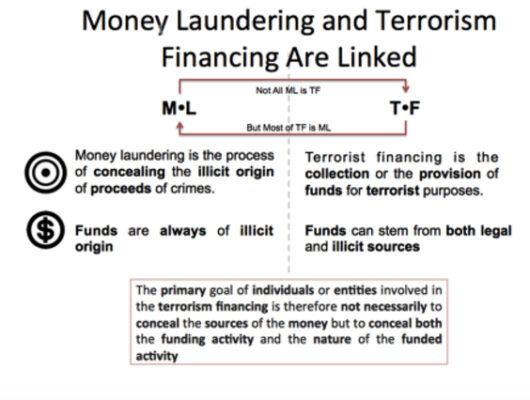- Home
- Prelims
- Mains
- Current Affairs
- Study Materials
- Test Series
18th July 2021
15 EUROPEAN COUNTRIES INCLUDING FRANCE THAT RECOGNISE INDIA-MADE COVISHIELD
France on 17 July 2021 said it will accept travellers who are vaccinated with Covishield, the AstraZeneca vaccine manufactured by Serum Institute of India. It is the 14th EU member to recognise the vaccine for inclusion in the EU green pass, which allows entry to travelers amid the Covid pandemic. Besides France, Covishield is now recognised for travel to Belgium, Austria, Bulgaria, Estonia, Finland, Germany, Greece, Hungary, Ireland, Latvia, Netherlands, Slovenia, Spain and Sweden. Switzerland and Iceland, which are not part of the bloc, had also accepted Covishield as Schengen state.

- Meanwhile, the vaccine is yet to be approved in countries like Italy, Croatia, Cyprus, Czechia, Denmark, Estonia, Lithuania, Lichtenstein, Luxembourg, Malta, Norway, Poland, Portugal, Romania and Slovakia. 14 of these are EU members while Norway and Lichtenstein are non-member states.
- France's move follows a global outcry over the fact that the European Union's Covid-19 certificate only recognizes AstraZeneca vaccines manufactured in Europe.
- Tunisia, Indonesia, Cuba and Mozambique have now been added to France's "red list" of countries with high virus risk.
- In the European Union (EU), there are two main routes for authorizing vaccines: a centralized route and a national route.
- While the majority of new, innovative medicines are evaluated by EMA and authorized by the European Commission, regulatory bodies of every country can also allow authorization to the vaccine within their jurisdiction.
- So far, the EMA has approved only those vaccinated by either of the four vaccines- Comirnaty of Pfizer/BioNTech, Moderna's Spikevax, Vaxzervria by AstraZeneca-Oxford, and Johnson & Johnson's Janssen - for restriction-free travel within the EU during the pandemic.
- That means people vaccinated with Covishield will be subject to quarantine protocols as enforced by individual member countries, and may even be blocked from entering some others.

- Pakistan was placed on the grey list by the Paris-based Financial Action Task Force (FATF) in June, 2018 and was given a plan of action to complete it by October 2019. Since then the country continues to be in that list due to its failure to comply with the FATF mandates.
- International cooperation in criminal matters through mutual legal assistance and extradition is intended to bridge existing gaps in respective countries toward effective law enforcement.
- The requested state will provide mutual legal support to the requesting state by executing necessary actions on its territory in any specific criminal case warranting shared assistance.
- The bill was passed by majority vote as the Opposition kept on expressing its reservations.
- With Pakistan's continuation in the 'grey' list, it is increasingly becoming difficult for Islamabad to get financial aid from the International Monetary Fund (IMF), World Bank, Asian Development Bank (ADB)and the European Union, thus further enhancing problems for the debt-ridden nation.
- The Paris-based FATF put Pakistan on the grey list in June 2018 and asked Islamabad to implement a plan of action to curb money laundering and terror financing by the end of 2019 but the deadline was extended later on due to COVID-19 pandemic.
- The FATF is an inter-governmental body established in 1989 to combat money laundering, terrorist financing and other related threats to the integrity of the international financial system.
- The FATF currently has 39 members including two regional organisations — the European Commission and Gulf Cooperation Council.
- Afghans want the continuation of the world's support to the peace process... Afghanistan still needs reconstruction and it needs 'constructive' ties with the region and the world.
- The Taliban said that despite a lack of progress in intra-Afghan negotiations, there is a need to keep the hope and that they will make efforts to make the talks a success.
- To ensure Afghanistan's prosperity, there is a need for a central and independent Islamic system. To achieve this we should ignore our personal interests.
- Earlier this week, local reports had suggested that that Kabul would send a high-ranking delegation.
- The delegation includes former President Hamid Karzai and head of the High Council for National Reconciliation Abdullah Abdullah, to Qatar's Doha.
- In recent weeks, Afghanistan has witnessed a spike in violence. Taliban have stepped up offensive since the foreign forces began to withdraw from the country in May.
- The US AND NATO forces will complete military draw down till the end of August.
- States/UTshave been asked for convergence in efforts for better surveillance and case finding of TB and Covid-19, as early as August 2020.
- Apart from this, multiple advisories and guidance have also been issued by MoHFW to reiterate the need for bi-directional screening of TB-Covid and TB-ILI/SARI. The States/ UTs have been implementing the same.
- Due to the impact of Covid-19 related restrictions, case notifications for TB had decreased by about 25 per cent in 2020but special efforts are being made to mitigate this impact through intensified case finding in OPD settings as well as through active case finding campaigns in the community by all States.
- The dual morbidity of Tuberculosis (TB) and Covid-19 can be further highlighted through the fact that both the diseases are known to be infectious and primarily attack the lungs, presenting similar symptoms of cough, fever and difficulty in breathing, although TB has a longer incubation period and a slower onset of disease.
- Furthermore, TB bacilli can be present in humans in a dormant state and has the potential to start multiplying when the individual's immunity is compromised for any reason.
- The same is applicable in post Covid scenarios, when an individual may develop decreased immunity due the virus itself or due to the treatment, especially immune-suppressants like steroids.
- SARS-CoV-2 infection can make an individual more susceptible to developing active TB disease, as TB is an opportunistic infection like black fungus.









 Latest News
Latest News
 General Studies
General Studies